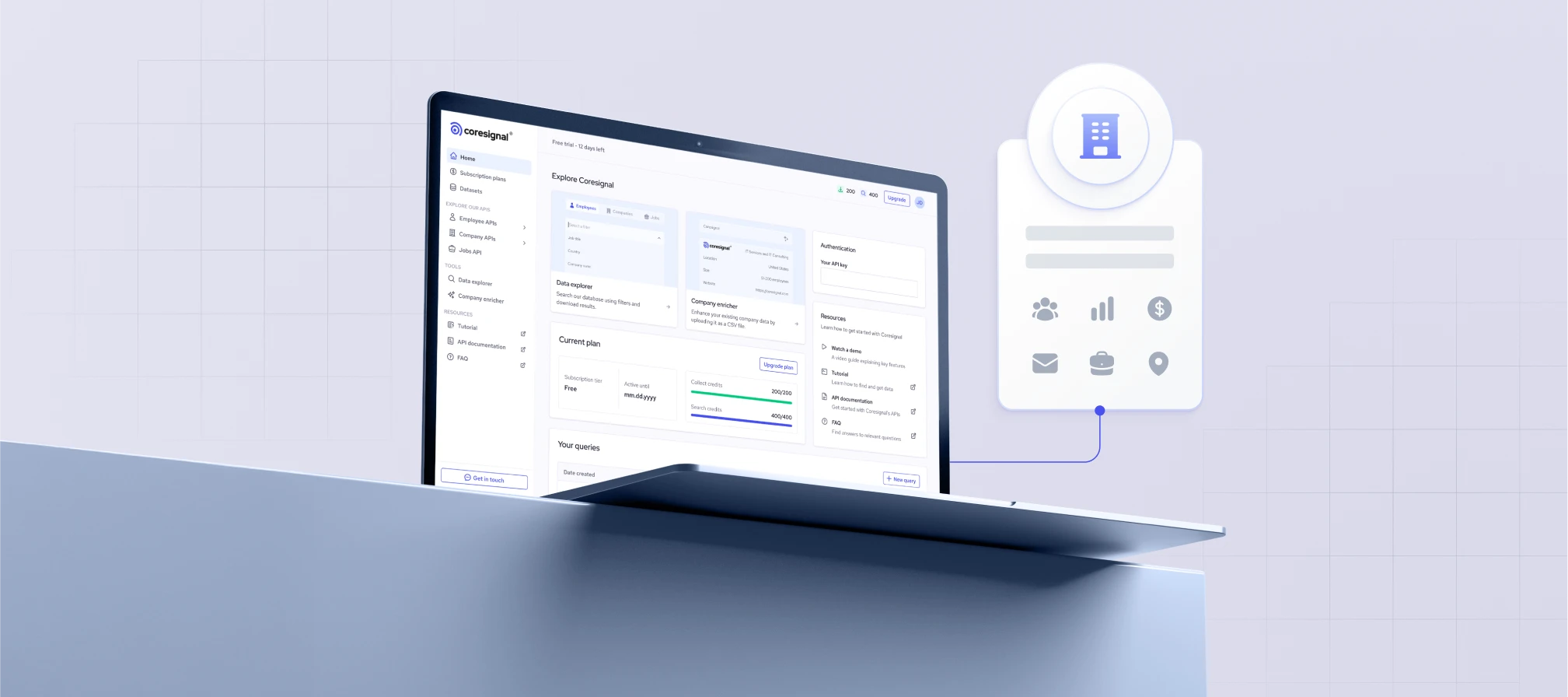Global private AI companies raised $100.4 billion in funding in 2024, making it a record-setting year, according to CB Insights. The race is on to find the right partners, vendors, and investment opportunities in the rapidly expanding AI landscape. But identifying which companies are truly AI-first versus those merely using AI as a feature can be challenging.
That’s where Coresignal's data can make the difference, enabling you to segment the AI market with precision and speed.
So, how to find emerging AI companies?
What qualifies as an AI company?
The term AI company covers a broad spectrum of enterprises: from startups building foundation models to traditional enterprises adding generative features into their existing products. Most of them would fall under one of the three types:
- Companies building AI
- Companies commercializing AI
- Companies that are using AI as a supporting feature
Overall, an AI company is an organization whose core products, services, or business models are fundamentally based on artificial intelligence technologies, including machine learning, deep learning, natural language processing, computer vision, or robotics. Here's a more detailed breakdown of the key categories of AI companies:
With such an extensive range of practical AI applications, how can you find the right companies that fit your preferences?
Step-by-step guide on how to find AI companies with Coresignal
Coresignal provides extensive B2B data in three categories: company data, employee data, and jobs data that can help identify AI companies for:
- Investment and market research: Identify promising startups, assess industry trends, and benchmark performance across the AI sector.
- Business development: Identify potential partners, clients, or acquisition targets for collaboration or integration opportunities.
- Talent sourcing: Target companies for recruitment, understand where top AI talent is employed, and analyze hiring trends.
- Competitive intelligence: Monitor competitors’ activities, product offerings, and positioning within the AI ecosystem.
These are just some of the use cases for the data, so try it out to check how well it fits your use case risk-free.
To start the AI company search, create an account:
1. Go to the Company API playground
Once you enter the self-service portal, you can find a list of all the APIs we offer on the left: Employee, Company, and Jobs APIs. Choose Company API Playground.
We provide three types of Company APIs, each tailored to different needs:
- Base Company API: Provides essential data fields, including firmographics. It's suited for quick enrichment and lightweight use cases but may contain duplicate entries.
- Clean Company API: Delivers deduplicated and standardized company data, making it easy to work with and consistent across records.
- Multi-source Company API: Offers premium, high-detail company profiles with over 500 data fields aggregated from multiple distinct sources.
Each request costs credits – 2 credits for Multi-source API, and 1 credit for Base or Clean APIs. You can choose your preferred API while writing the prompt:
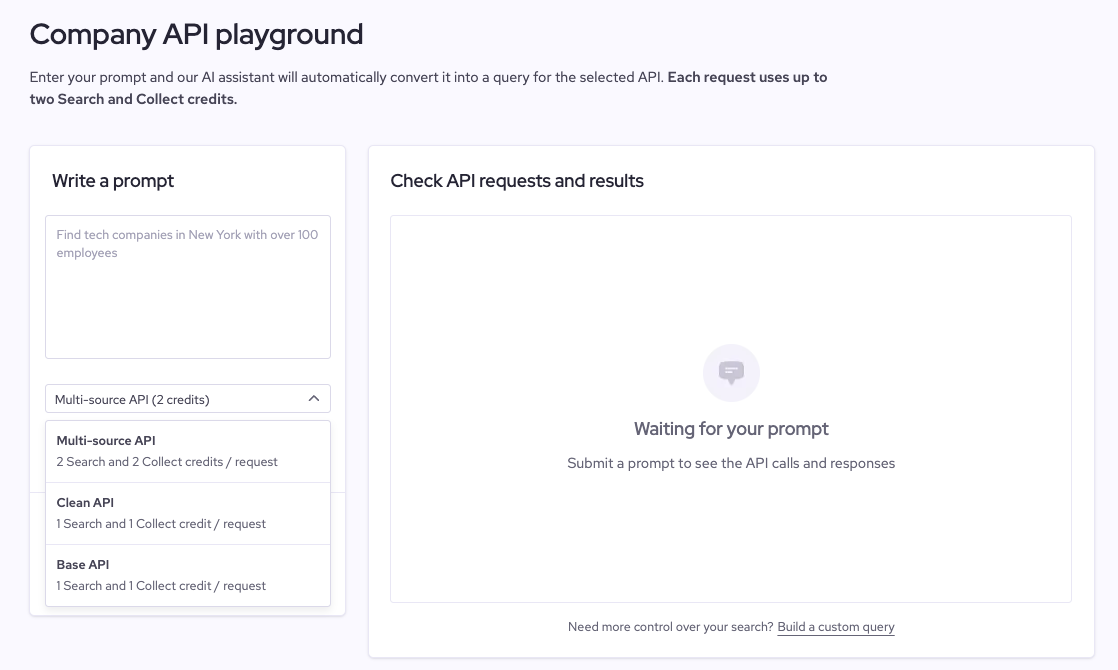
I recommend using the Multi-source Company API because it contains the most detailed information. The Multi-source Company API will be automatically selected, and in the you’ll see a collection of pre-built query templates ready to use.
To get an understanding of how the tool works, try the Prompt examples. They generate a query that retrieves various types of data, such as a list of AI companies hiring marketers, as shown below:
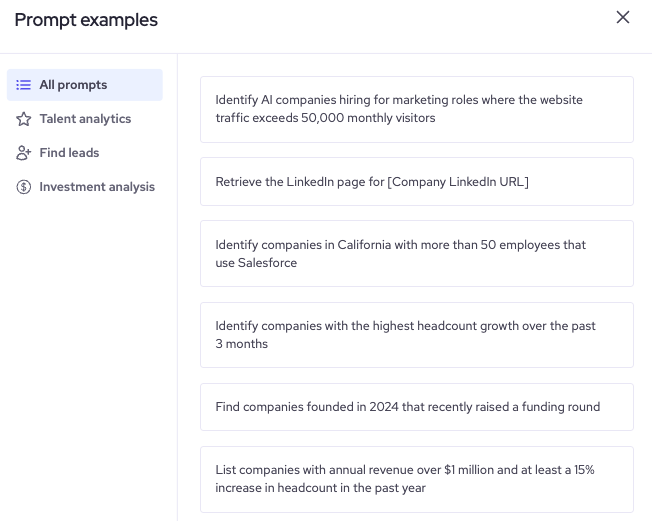
Now that you know how to use the tool, you can write your prompt.
2. Filter AI companies by sector
If you want to find companies that are in a specific vertical or industry, such as aerospace, you can use the following query: Find companies in aerospace that create AI products. Our AI Query Builder will automatically create a request for the database:
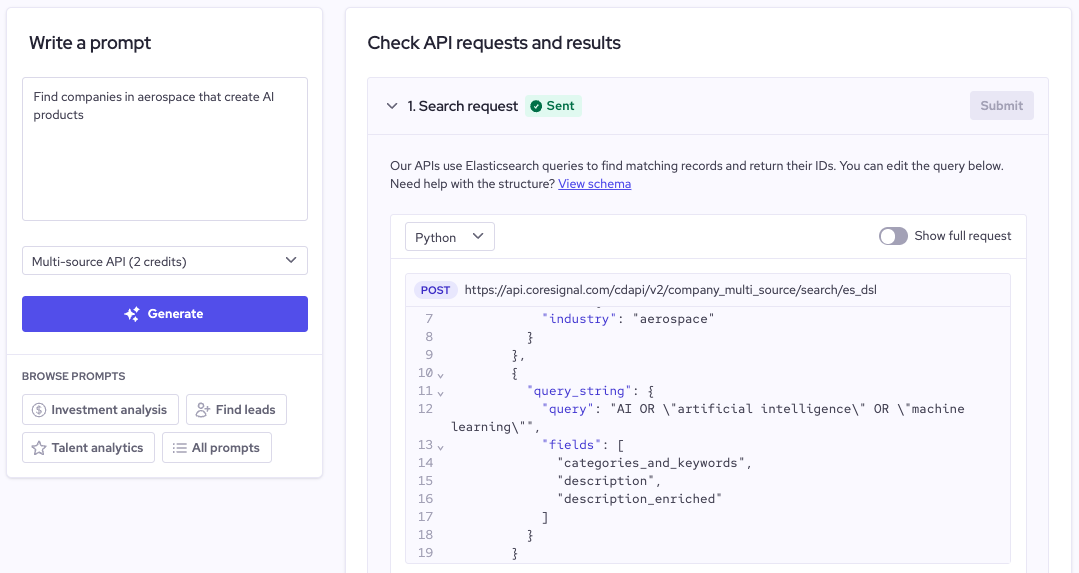
As a result, you will get an AI company database with enterprises that work in this particular industry:
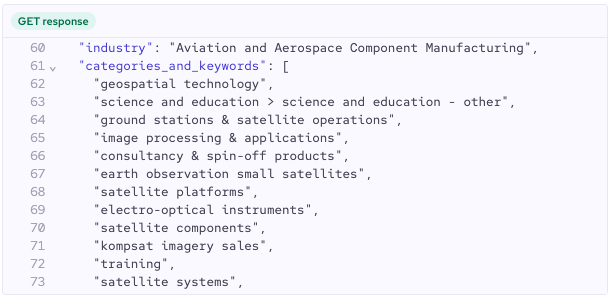
3. Filter AI companies by funding round and stage
Are you interested in finding AI startups or early-stage companies that are creating AI products? You could get a list of companies in the seed funding stage with this prompt : Find AI companies that have received seed round funding.
The AI query builder creates a search request and returns companies that work with AI and have had seed funding:
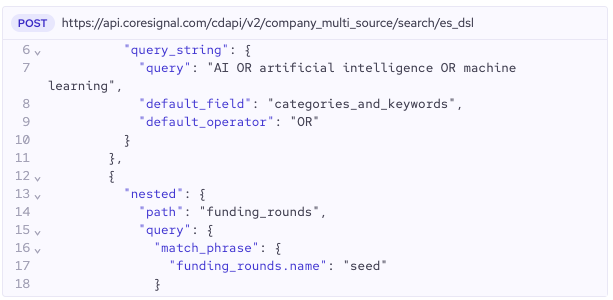
4. Filter AI services companies using specific keywords
If you're interested in finding generative AI companies that develop chatbots or other specific type of product, simply paste the request below. I've also included additional filter (headquarters) to narrow down the search. My prompt sounds like this: Find companies that have their headquarters in New York and create conversational AI tools, chatbots.
This query returns a list of companies that have their headquarters in New York and create conversational AI tools. One sample record fitting this request is Bromin7 agency:
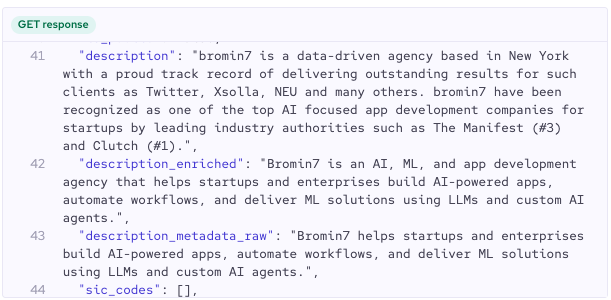
Of course, each of these requests can be narrowed down even further – filter by any parameter you feel fit.
How to find AI companies?
AI adoption is accelerating. According to McKinsey research, in 2024, 78% of organizations reported using AI in at least one function. That means the market is both crowded and fast-moving. Getting data about AI companies fast gives you the visibility and control needed to discover the right AI partners or prospects at scale
With Coresignal's data, you can:
- Filter companies by funding round, industry, AI keywords, and headcount growth
- Identify early-stage innovators vs. late-stage commercializers
- Segment vendors by use case
- Monitor traction through job postings and employee growth
Using these tools, you can explore beyond well-known unicorns and uncover emerging AI-first startups that align with your technical or product goals.

